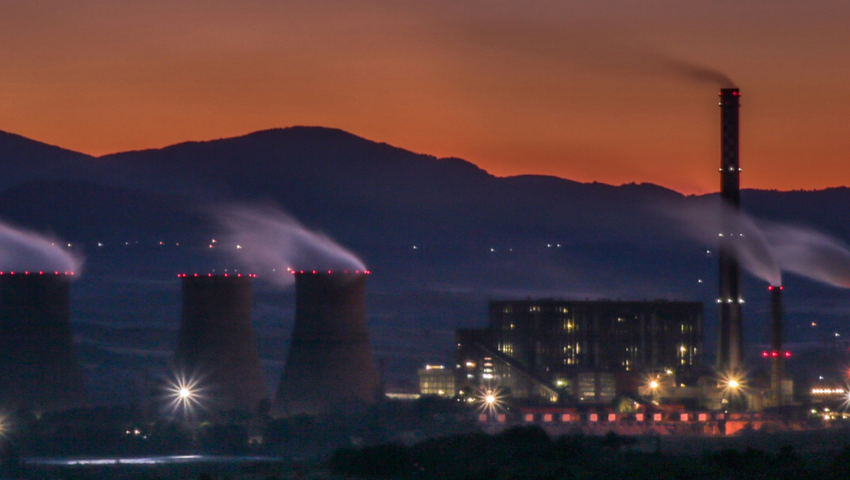
Interview
The energy transition accelerates
The supply of raw materials in Europe is going to radically change. Explanations from Clive Burstow, a mining industry specialist at Barings
By Bertrand Beauté
One of the most concerning consequences of the war in Ukraine is that since Russia produces many raw materials, the price of those materials is rising dramatically, worsening what is already record inflation. And this situation will continue, according to Clive Burstow, head of Global Resources at the US investment firm Barings.
The war has led to a rise in energy prices. Will oil and gas remain expensive in the long term?
Yes. Don’t forget that energy prices were already rising before the war - oil, for example, was up more than 40% in 2021. Why? After the pandemic, the economic recovery strongly stimulated demand while, on the supply side, the sector suffered from chronic underinvestment. In other words, production struggled to meet demand, as it took time to increase volume. And then the war in Ukraine happened, adding to this already delicate situation. The tragedy demonstrated just how fragile our energy supply is, not just in Europe but all over the world.
Could improving relations with Iran and Venezuela – two oil-producing countries that are under embargoes – help to rebalance supply and demand?
Everyone’s talking about these two countries in the current context, but even if the embargoes were lifted, the situation would still be complicated. Venezuela is not able to increase its oil production due to a lack of investment in its infrastructure. It would take years for the country to reach a significant level of production. Iran, on the other hand, has maintained its production capacities and its oil can be used. The problem here is geopolitical. How will Saudi Arabia react if Iran increases production? What will happen if Iran starts trading with Russia?
On 7 April, the European Union announced an embargo on Russian coal starting in August. How do you interpret that sanction, given that it doesn’t apply to oil and gas?
The EU’s response to the invasion is a tactical short-term change, but it is part of a longer-term structural change. Before the war, we were already trying to distance ourselves from a system that was heavily dependent on fossil fuels and move towards renewable energies. But that takes time. When war broke out, everything changed: European countries decided to work together to accelerate their energy transition. Even if the EU cannot immediately move away from Russian oil and gas, it will do so gradually. The next 10 years will be fascinating because we’re going to see a phenomenal acceleration in the process of energy transition. The war in Ukraine is a deciding factor in that.
But this transition requires metals, including those of which Russia is a major supplier...
Indeed, for the same amount of energy produced, an offshore wind farm requires, for example, an average of five times more steel than an onshore fossil fuel electric power plant. And Russia produces many metals such as aluminium, palladium and nickel. Russian palladium, for example, is necessary to reduce CO2 emissions in the automotive sector. The conflict will lead to a global reorganization of supply sectors. Each country will try to secure their own sources of metal.
The EU is studying this issue very closely. It has drawn up a list of critical materials for which it wants to become less dependent on non-EU countries, either by increasing reserves or ensuring its own production. But for the time being, the EU does not have mining capacities to reach this objective.
It is possible to save or recycle metals to fill the gap, but it will not be enough. And even on a global level, metal production remains insufficient to enable energy transition. The reality is that metals need to reach even higher prices in order to encourage an increase in global mining capacities.
"The tragedy demonstrated just how fragile our energy supply is"
So are mining companies considered good investments?
Large producers such as Australia’s BHP and the UK’s Anglo American will benefit from the energy transition. What’s interesting is that the mining industry was poorly viewed for a long time from an ESG perspective because it’s a high-carbon industry. But now, investors are starting to realise that the natural resources sector is part of the solution rather than the problem when facing climate change – because without mines and metals, it’s impossible to build wind turbines or solar panels to replace fossil fuels.
According to the UN Food and Agriculture Organization (FAO), global food prices reached their highest levels in March, as a result of increased grain prices due to the war. Will prices remain high?
People certainly need to eat and food needs to remain affordable. It’s a political imperative for governments to ensure that food price inflation remains under control. The agri-food industry is doing everything it can to improve its yields and change its supply systems to deal with the crisis in Ukraine. However, it is not certain that these measures are enough to bring down food prices in the short term.
